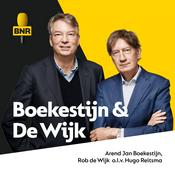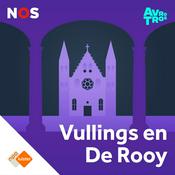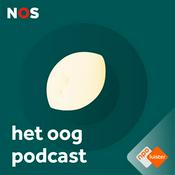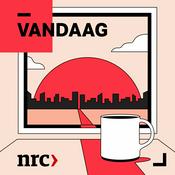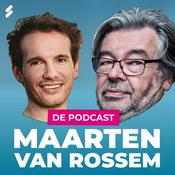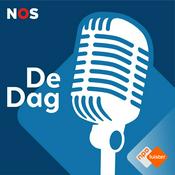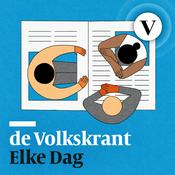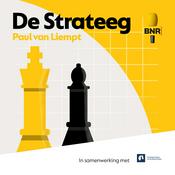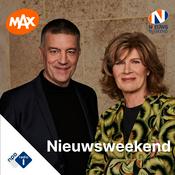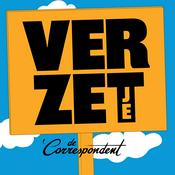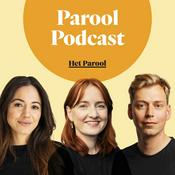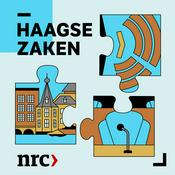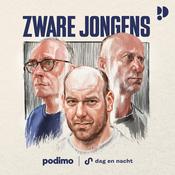61 afleveringen
- In this session, we are joined by Rebecca Wirfs-Brock, who will first present a short talk on their essay Critically Engaging With Models followed by a group discussion. It would be great if you could read their essay beforehand. If you want to support their writing and read more, you can buy their book, Design and Reality: Essays on Software Design
Models, whether for a software system, a development process, diseases, political systems, or otherwise, are a way to look at (a part of) the world. They make a choice about what is important, what categories we classify things in, what we see, what’s invisible, what’s valued, or even what’s valid. They are reductionist, that is, they only show a selection of the subject they’re describing. And they are biased: They implicitly reflect the assumptions, constraints, and values of the model’s author. Most of the time, when you adopt a model created by someone else, you assimilate it into your world view without much thought. You acquire a new way of seeing something. But when you do that, you may not understand the model’s limitations. However, you can choose to look at someone’s model more intentionally. We will share and discuss some tools for critically evaluating any models that come your way. You can assess whether this model fits your needs. If you’re looking at a model for the first time, you can use that fresh perspective to see what the model includes and what it leaves out. Models are a powerful lens for perceiving a subject, and you should be deliberate when wielding them. - Automation is a frequently discussed topic in the development and test communities - and has been for many years. Similarly, patterns have been part of community discourse ever since the Design Patterns book was published in 1994. It appears to us that both suffer from periodic bursts of hype and long stretches of neglect.
While working on the Automation Patterns portion of our new book Effective Behavior-Driven Development, we have had the chance to explore the nuances of context specific automation and pattern forms. Our knowledge of BDD-specific automation styles comes from many years of practical application in industry. However, our experience with patterns has, up until this point, been mainly one of consumption. That changed when we took a subset of our BDD automation patterns to this year’s EuroPLoP pattern workshops — and got a refreshed view of pattern authoring.
We’re happy to share the insights gained and challenges remaining in a conversation with VirtualDDD.
About the speakers
Seb has been a consultant, coach, designer, author and developer for over 40 years. He has been involved in the full development lifecycle with experience that ranges from architecture to support, from C to Visual Basic.
During his career, he has worked for companies large (e.g. IBM, Amazon) and small, and has extensive experience of failed projects. He's now an independent software consultant and author, promoting effective ways of working to the software development and testing community.
Regular speaker at conferences and occasional contributor to software journals. Co-author of "Effective Behaviour Driven Development" (Manning), lead author of “The Cucumber for Java Book” (Pragmatic Programmers), and contributing author to “97 Things Every Programmer Should Know” (O’Reilly).
He blogs at claysnow.co.uk and socialises as [email protected]
Gáspár Nagy, the creator of SpecFlow & Reqnroll, bringing over 20 years of experience as a coach, trainer and test automation expert nowadays through his company, called Spec Solutions. He is the co-author of the books "Discovery: Explore behaviour using examples", "Formulation: Document examples with Given/When/Then" and "Effective Behavior-Driven Development" and also leads SpecSync, aiding teams in test traceability with Azure DevOps and Jira. He is active in the open-source community through leading the Reqnroll project. Gáspár shares his insights at conferences, emphasizing his commitment to helping teams implement Behavior-Driven Development (BDD). - When developing your software products, be it coding, testing, user experience, product management, or all the other elements required to solve a customer need, do you understand what the rest of the people do to make that happen? What about the other people in your organisation, maybe working on different products or even other legs of the customer journey like sales, customer service, billing, and operations? Do you see how you fit into the big picture, and what your contribution is to the company vision and strategy? I suspect most of us neither have the time nor the opportunity to get a wider view, focusing on our little part of the bigger system instead and making the best of that.
We know that a system is supposed to be more than the sum of its parts, but how can we make sure that the sum is positive? That is hard when we cannot see the forest for the trees.
Let us employ systems thinking to give us a holistic perspective, by adding synthesis to our analysis skills so that we can explore and understand emergence. We all know reductionism well, working on parts in isolation but holism is required to provide important insights and knowledge to handle the complexity in domains we normally work in – especially where people are involved. Only then can we build sustainable and adaptive software systems.
This is an introduction to systems thinking and its importance when dealing with complexity.
About Trond
Senior IT Consultant and sociotechnical practitioner.
Trond is an IT architect and open sociotechnical systems practitioner with extensive experience working with large, complex, and business-critical systems in industries such as telecom, media, TV, and the public sector. His main interests are service-orientation, domain-driven design, event-driven architectures, and open sociotechnical systems. His mantra: Great solutions emerge from collaborative sense-making and design. - Software teams often reach for Kubernetes or similar prepackaged answers as default solutions to complex problems. But Kubernetes isn’t a strategy—it’s a tool. Using it prematurely can bury your team in unnecessary complexity and unwanted consequences. These ‘default’ answers reflect a deeper issue: we don’t understand the problem we're solving.
Through real-world examples, we’ll discuss how to think critically about the way decisions are being made in your company. We’ll introduce concepts like participation theater—when people perform the rituals of decision-making without making real decisions—alongside problem restatement as a tool to uncover the real challenge at hand. We’ll also examine different types of decisions (reactive vs. proactive, reversible vs. irreversible) and why recognizing them early changes how you should approach them.
This talk is a call to slow down to speed up your decision-making. Whether you're an engineer, architect, or tech lead, this session will challenge you to pause before reaching for Kubernetes (or other technologies) and instead ask: what problem am I really trying to solve?
About Gien
Gien Verschatse is an experienced consultant and software engineer that specialises in domain modelling and software architecture. She has experience in many domains such as the biotech industry, where she
specialised in DNA building. She's fluent in both object-oriented and functional programming, mostly in .NET. As a Domain-Driven Design practitioner, she always looks to bridge the gaps between experts, users, and engineers.Gien is studying Computer Science at the OU in the Netherlands. As a side interest, she's researching the science of decision-making strategies, to help teams improve how they make technical and organisational decisions. She shares her knowledge by speaking at international conferences.And when she is not doing all that, you'll find her on the sofa, reading a book and sipping coffee. The paradox or polarity between decentralised and centralised decision-making
16-10-2025 | 1 u. 15 Min.When it comes to giving software teams the autonomy to make their own decisions, trust can be a delicate thing. This is particularly true when those decisions can have a wider impact on other teams and the overall system. If organizations are shifting towards decentralized decision-making, how do they replace the safety net of authority with trust through practices that put accountability closer to where the work happens?
In this session, we'll explore the paradox between centralized and decentralized decision-making. We'll discuss how a centralized approach aims to prevent mistakes but can also block teams from developing business-centric solutions, while a decentralized approach can lead to more sustainable decisions and empowered teams.
This will be an interactive, 1-2-all session. Andrea and Kenny will each present for ten minutes on their practices and experiences, followed by a ten-minute dialogue. The session will then open up to everyone for a broader conversation. We'll use a Miro board for sense-making exercises to help us model and explore these ideas together.
Meer Nieuws podcasts
Trending Nieuws -podcasts
Over Virtual Domain-driven design
If you don't live near an active Domain Driven Design meetup, or just want to get more in-depth knowledge of DDD, please join this vast growing community! Anyone is invited here.
We strive to create a community of like-minded people eager to dive more into Domain Driven Design. We are going to organise panel discussions, community talks and more.
So feel free to join us!
Podcast websiteLuister naar Virtual Domain-driven design, Boekestijn en De Wijk en vele andere podcasts van over de hele wereld met de radio.net-app
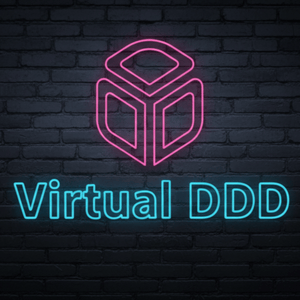
Ontvang de gratis radio.net app
- Zenders en podcasts om te bookmarken
- Streamen via Wi-Fi of Bluetooth
- Ondersteunt Carplay & Android Auto
- Veel andere app-functies
Ontvang de gratis radio.net app
- Zenders en podcasts om te bookmarken
- Streamen via Wi-Fi of Bluetooth
- Ondersteunt Carplay & Android Auto
- Veel andere app-functies


Virtual Domain-driven design
Scan de code,
download de app,
luisteren.
download de app,
luisteren.


